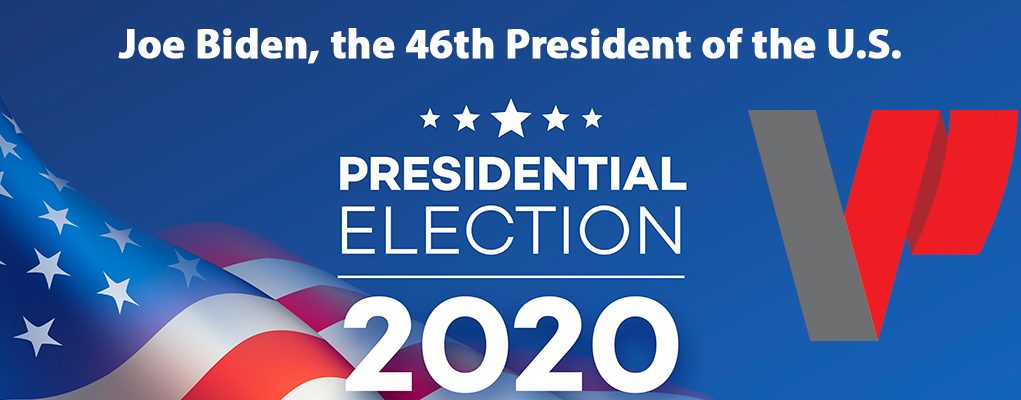Author Note: Yeah, we know that this isn’t really a vaping story. But, it is important and provides context to what will happen after the U.S. Election in the coming months. Once we are able to navigate the results controversy and the transition to a Biden presidency, we can have a better view of what the next administration has in store for tobacco and nicotine regulation in the first 100 days (the most crucial of any new presidency in the U.S.). We also feel the need to breakdown many of the systems at work here, given the overt complexity of the American election system. This is done for the benefit of our readers outside of the United States and as a reminder for our readers who reside within the country. – Michael McGrady, Vaping Post Columnist
The Associated Press has confirmed that U.S. President Donald Trump lost the election, projecting that rough 290 of the 538 electoral votes were for challenger Joe Biden.
The first candidate to 270 electoral votes clinches the American presidency and is to ascend to that position in the January of the following year.
Biden and Kamal Harris have moved toward fulfilling to roles of President-elect and Vice President-elect amid a historical Presidential Election on Nov. 3 in the United States.
Biden announced the creation of his transition task force to ensure a peaceful transfer of power to the incoming President-elect from the sitting administration of President Trump.
The transition task force, however, has not yet been confirmed by the federal General Services Administration (GSA). For those of you unfamiliar with the GSA, this independent agency within the United States government manages and provides basic logistical and functional support to all federal agencies in the executive branch. The administration is tasked with supplying products and communications for U.S. government offices too, and general transportation and office for federal employees, and is in charge of developing federal government-wide cost minimization policies and other management functions.
Consider the lack of recognition, the GSA is a very powerful agency under the control of a politically-appointed administrator who reports directly to the president. Emily Murphy, the current head of the GSA, is granted the power to “hand over the keys to the kingdom” when a president-elect is “ascertained” to have won the general election.
This management of power and balance is a crucial aspect of the presidential transition, regardless of who is the incumbent or the winner. Since the GSA controls much, they are the only agency in the federal government that can grant a new presidential transition team access to other agencies to ensure a transition is smooth and efficient.
Murphy, however, is an appointee of President Trump. Trump refuses to concede the race, claiming baseless allegations of widespread voter fraud. In many U.S. states, the COVID-19 pandemic forced states to permit early voting, mail-in voting, and other types of voting that aren’t the norm in several states. States like Colorado have established mail-in ballots years ago but not all states have those laws. COVID-19, however, necessitated the temporary change for accommodative voting to bolster high turn out. The changes in voting did just that, giving Biden and Harris early leads in many states that are crucial to winning the U.S. presidency. This is the heart of Trump’s voter fraud argument.
Never in the history of the United States has a sitting president willfully claim that legal and legitimate ballots should be rendered useless because of a potential loss. In return, the Republican Party and the Trump reelection campaign have filed lawsuits in several states requesting recounting or ballot counting to stop. However, there is no legal precedent for these lawsuits since the vast majority of the ballots were cast before or on election day making them valid. That said, Trump has very little chance to shift the election in his favor through the court.
Instead, this will come down to the actual meeting of the Electoral College. According to the National Archives and Records Administration, the Electoral College is a processing institution that convenes every four years to cast the official electoral vote in favor of the presidential candidate whom their home state chose. Electoral votes are determined by a state’s congressional representation and its population. States with only three electoral votes are like Wyoming, Alaska, and Montana. The state’s total population is small enough to be contained in one congressional district, with the representation of two senators elected on a statewide basis. An elector on that behalf is sent as a delegate to the college and the results are developed along with the electoral ballot casts.
You mix in the GSA issue, the presidential transition is going to be a messy business. However, for all intensive purposes, Biden is the going to be the next president.
This is a developing story and analysis.












